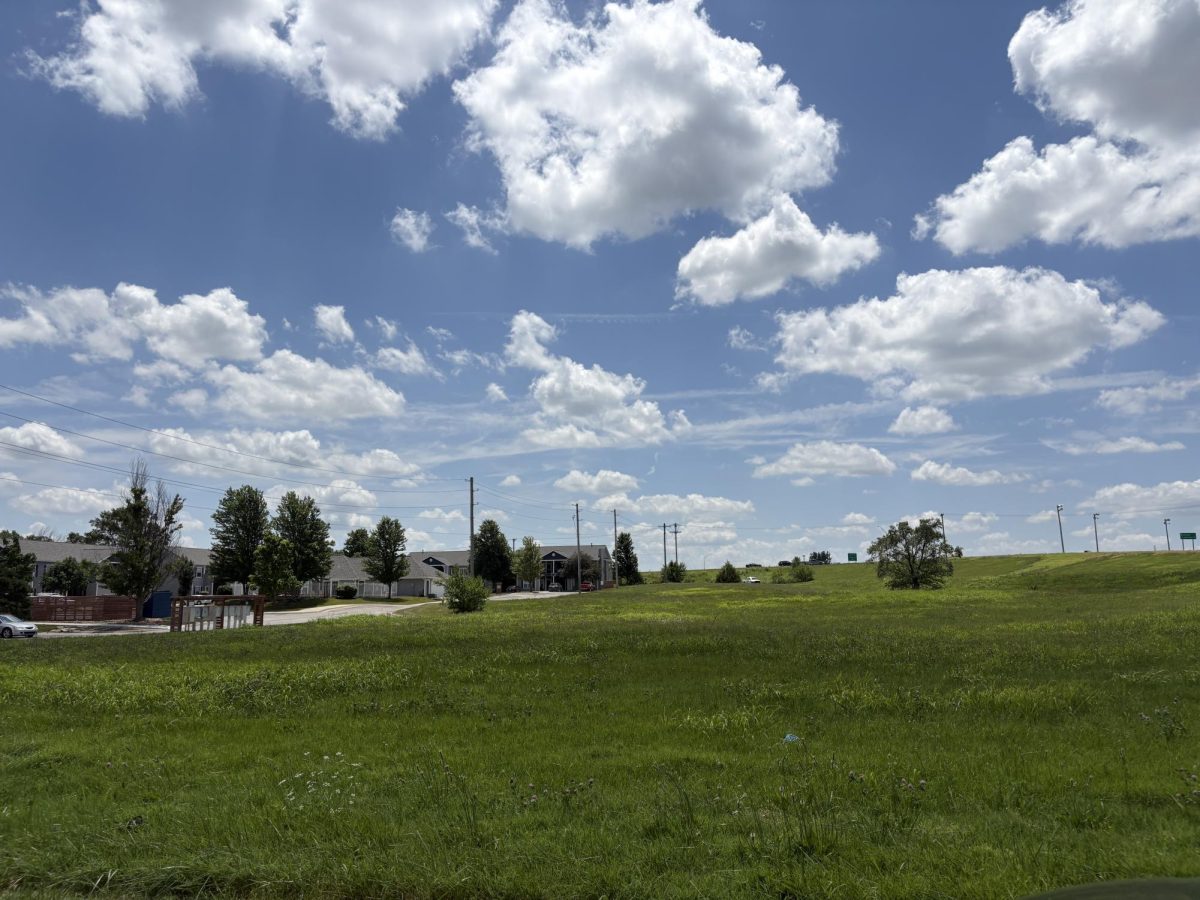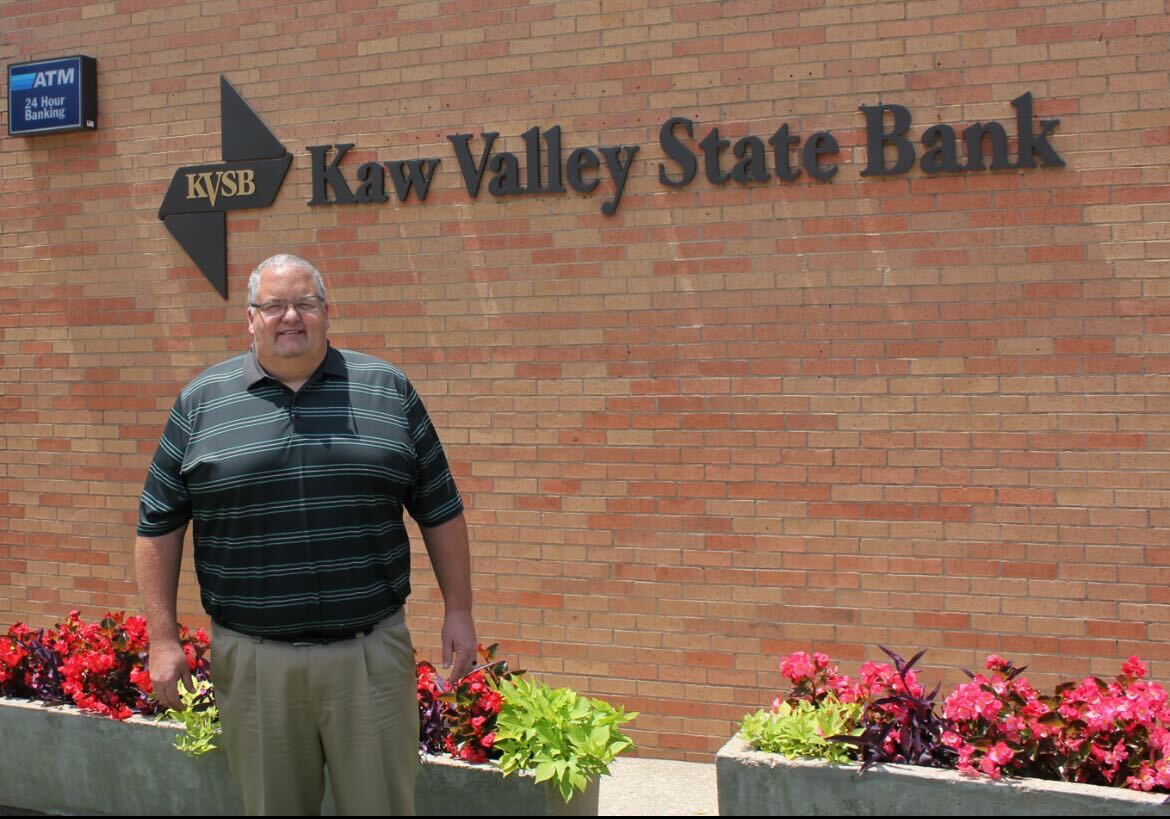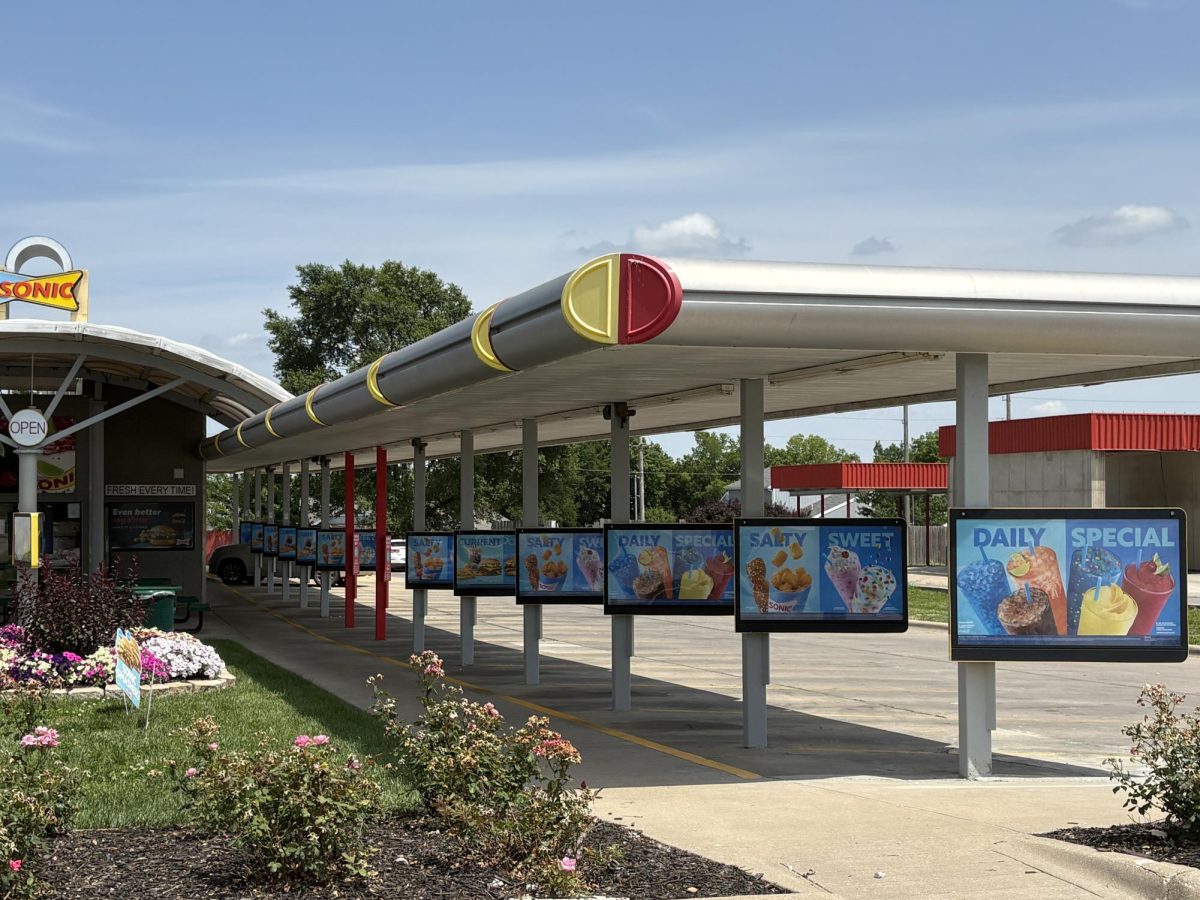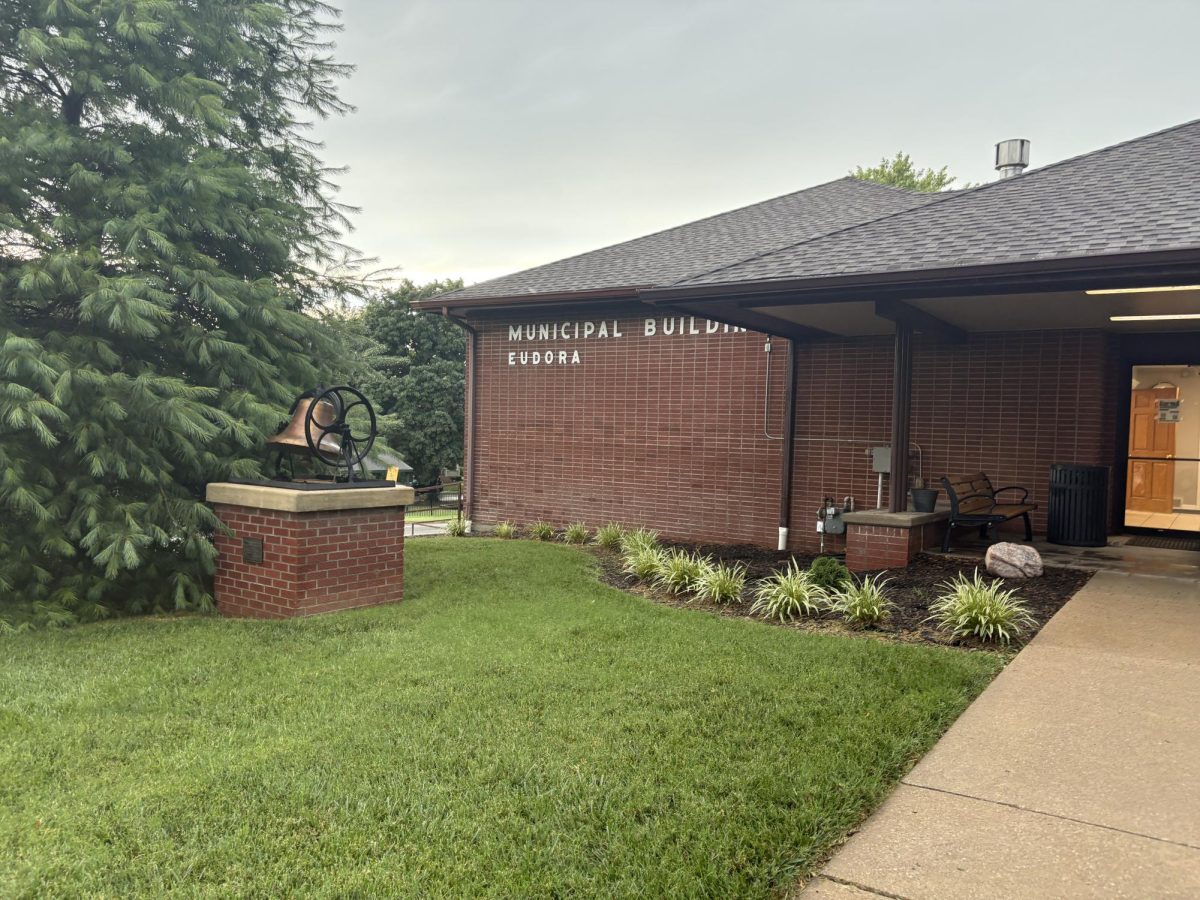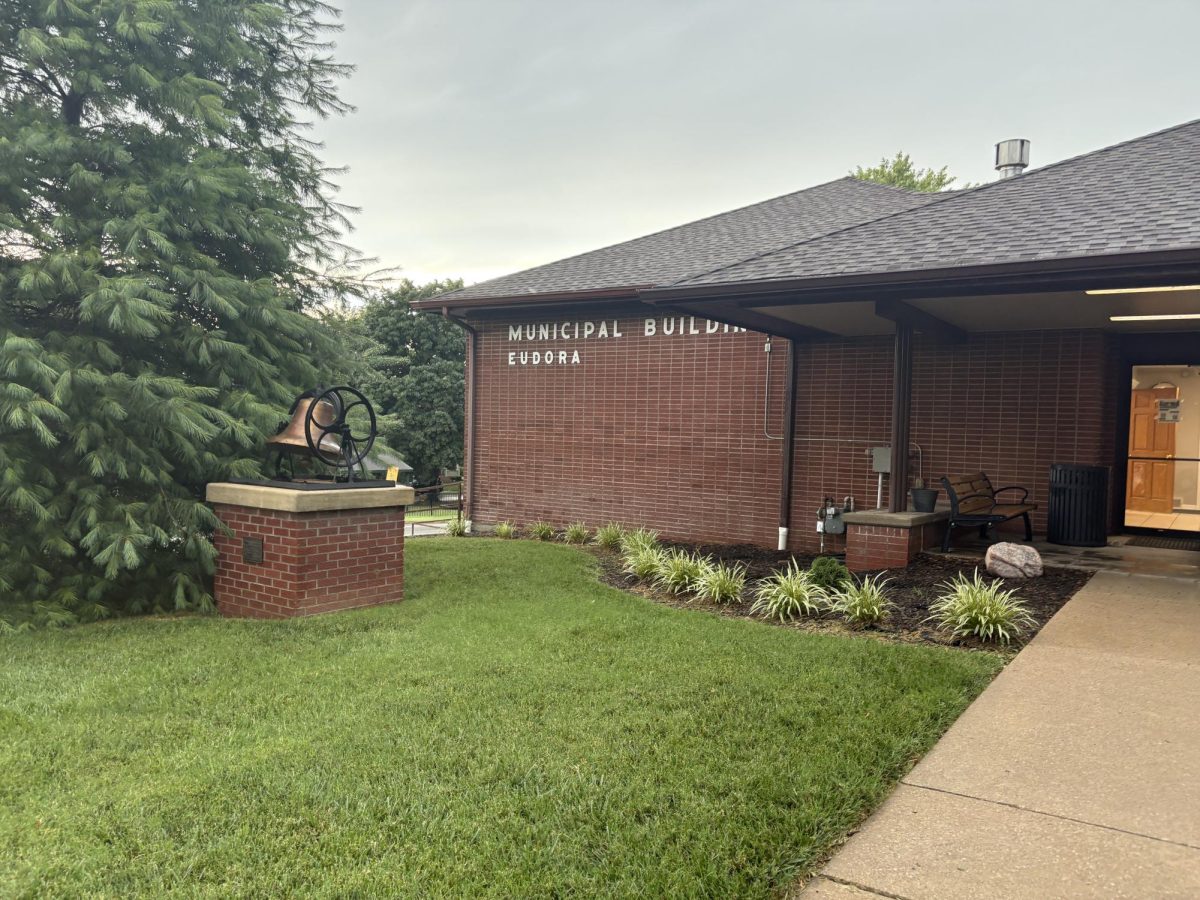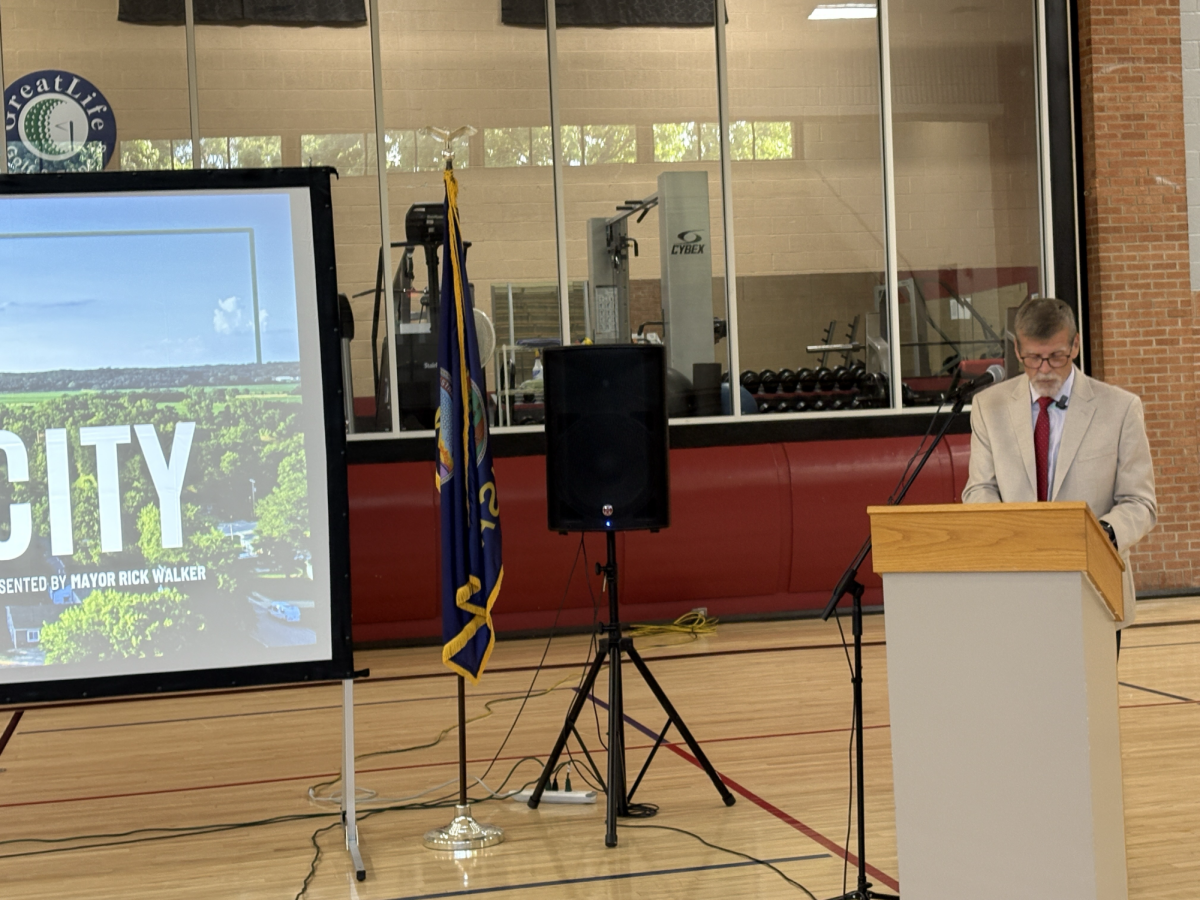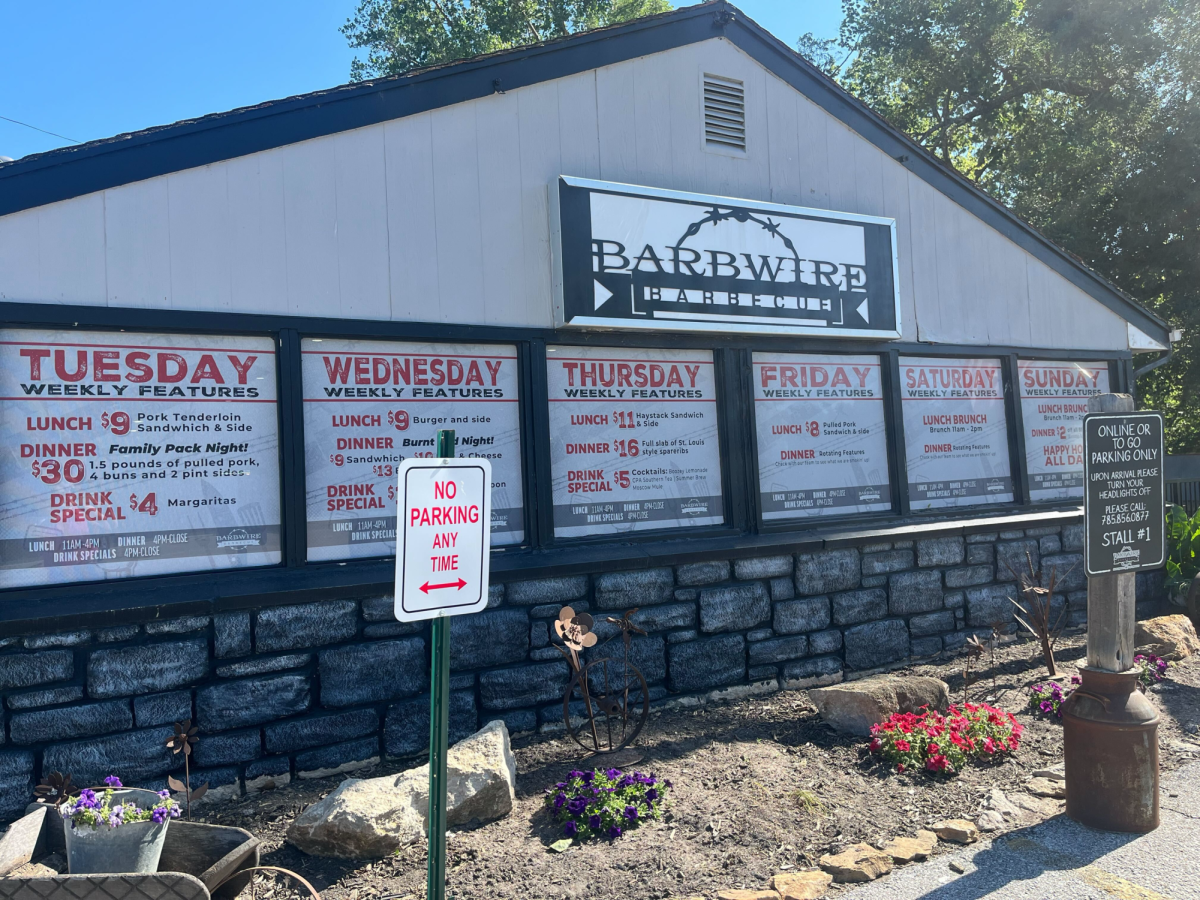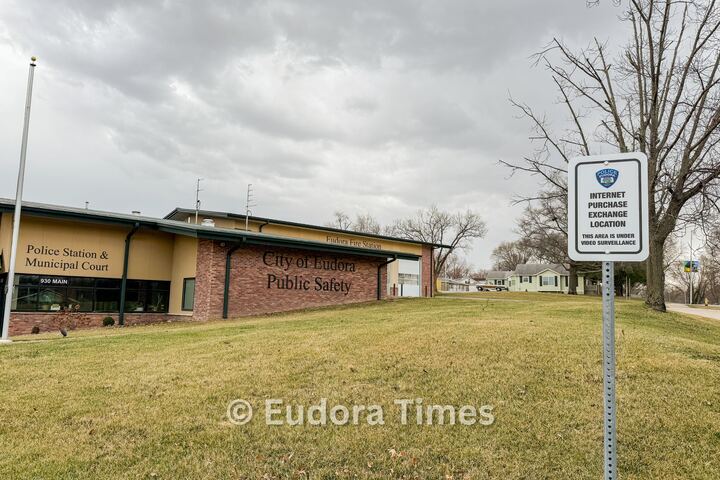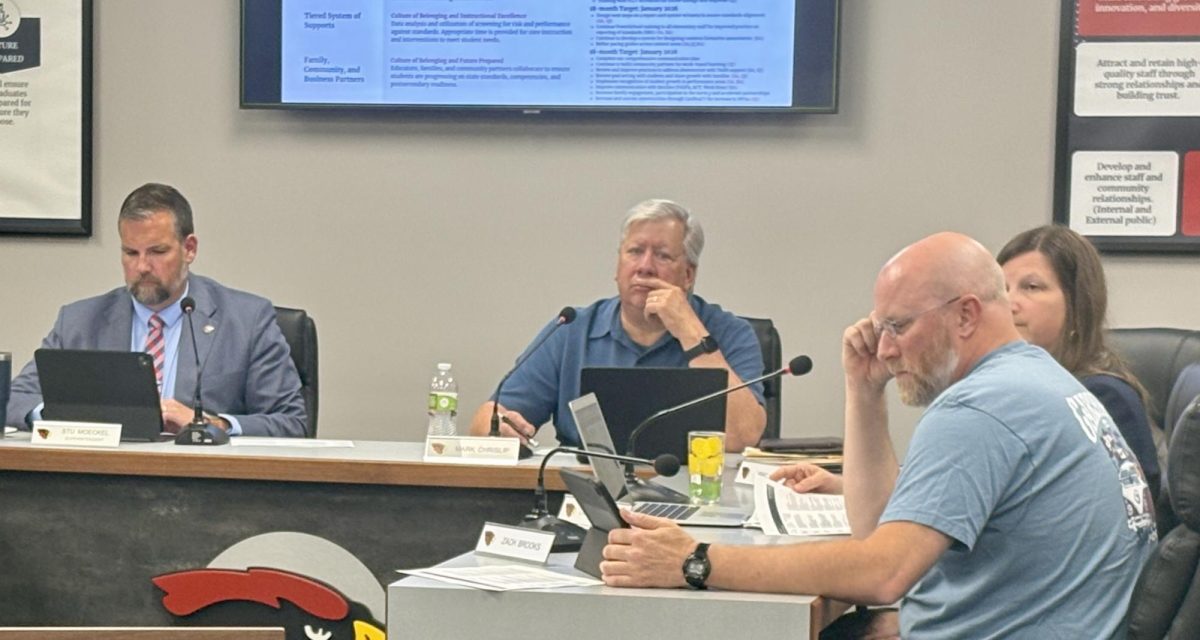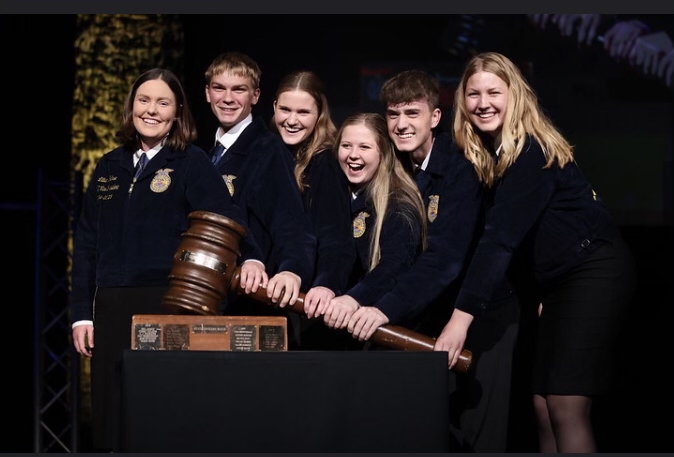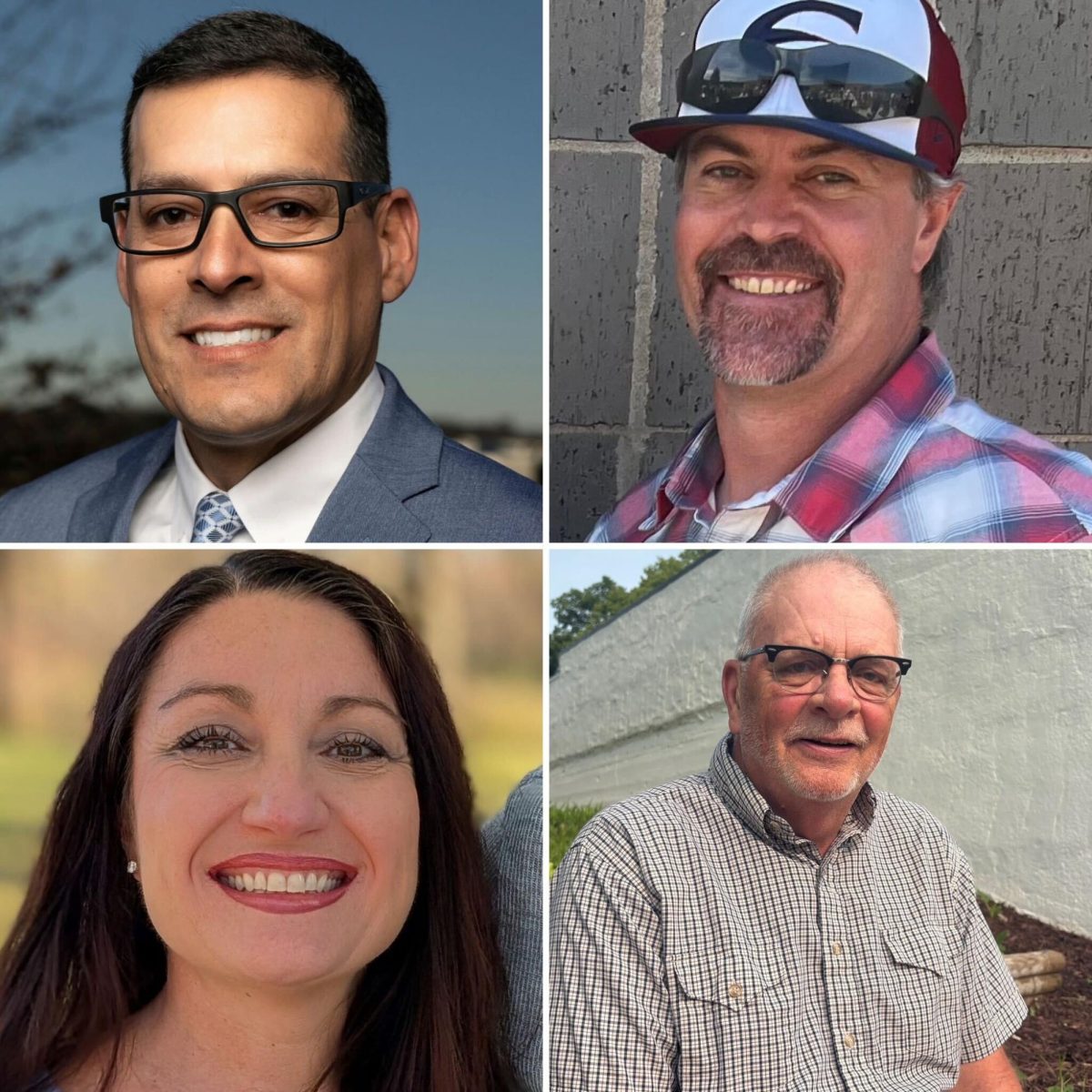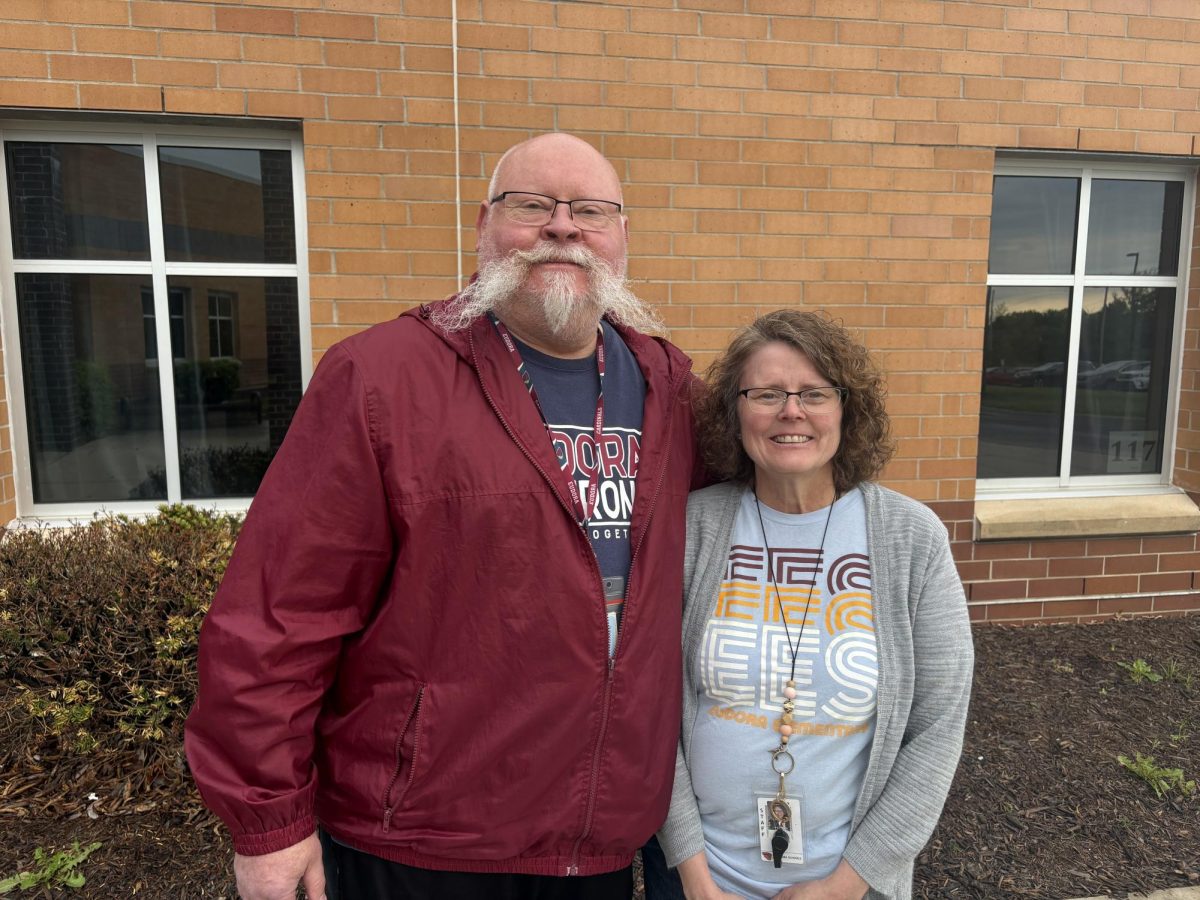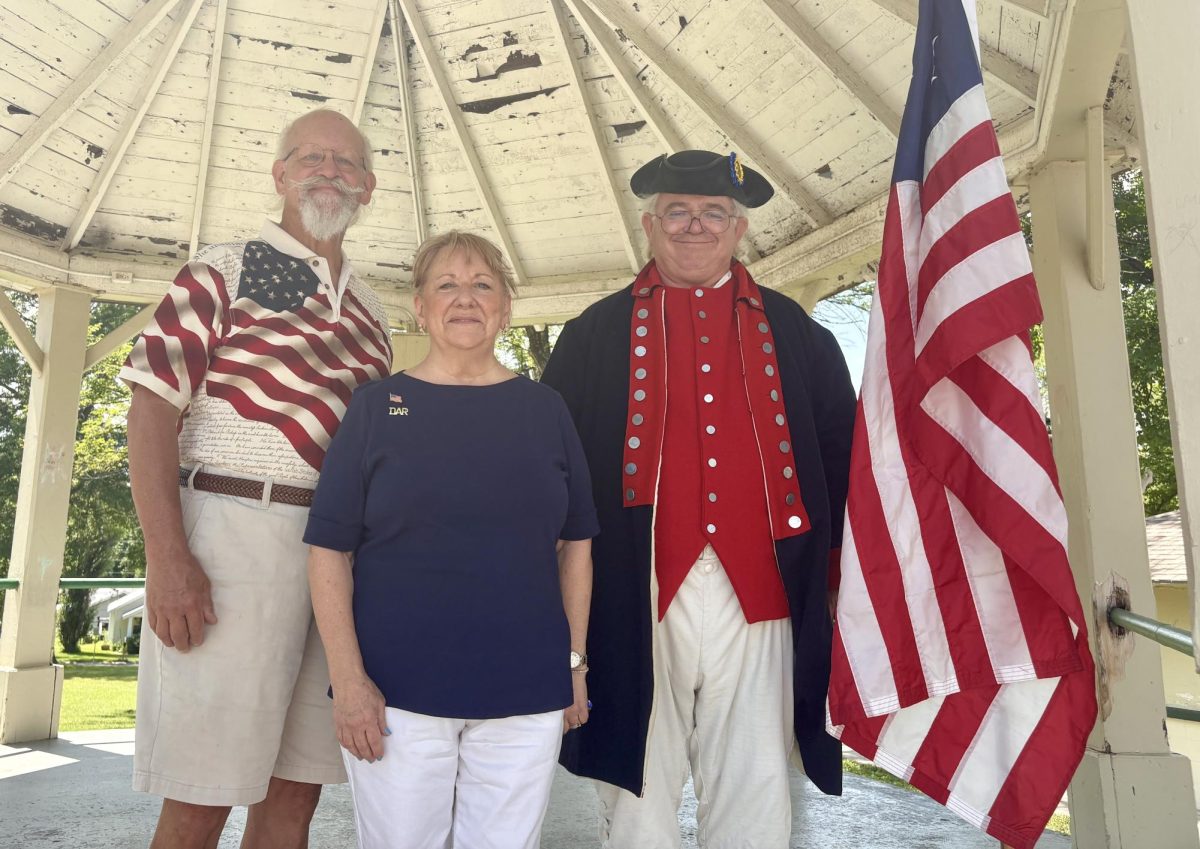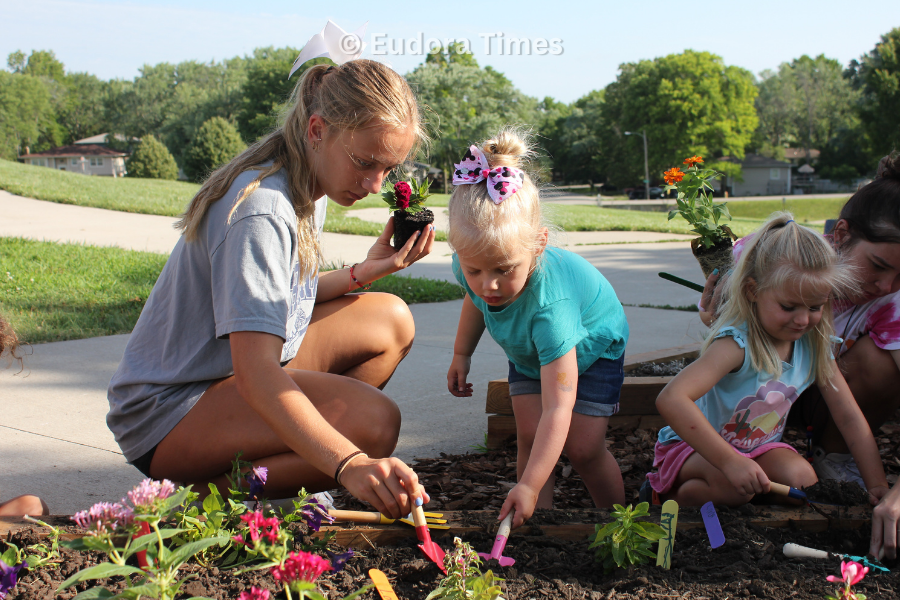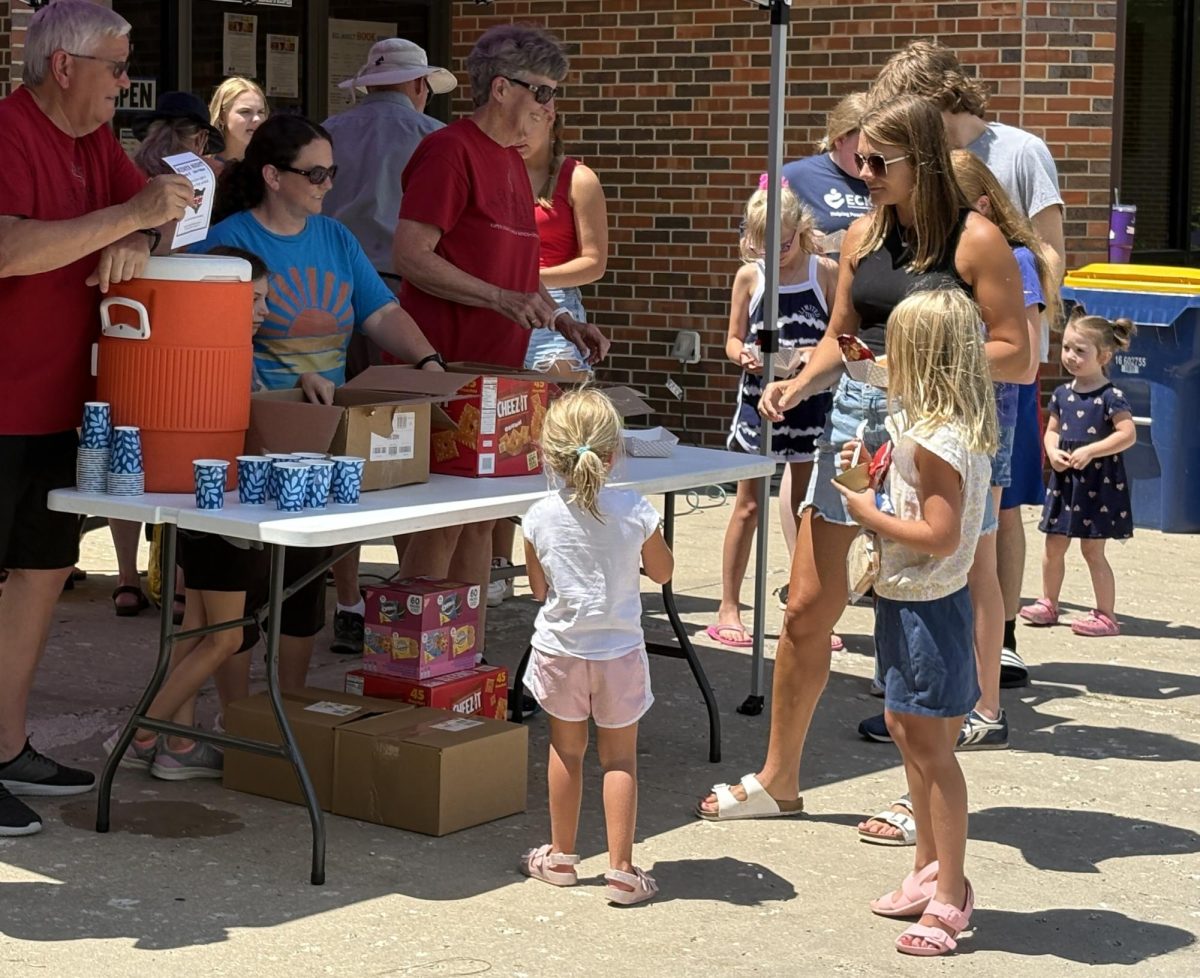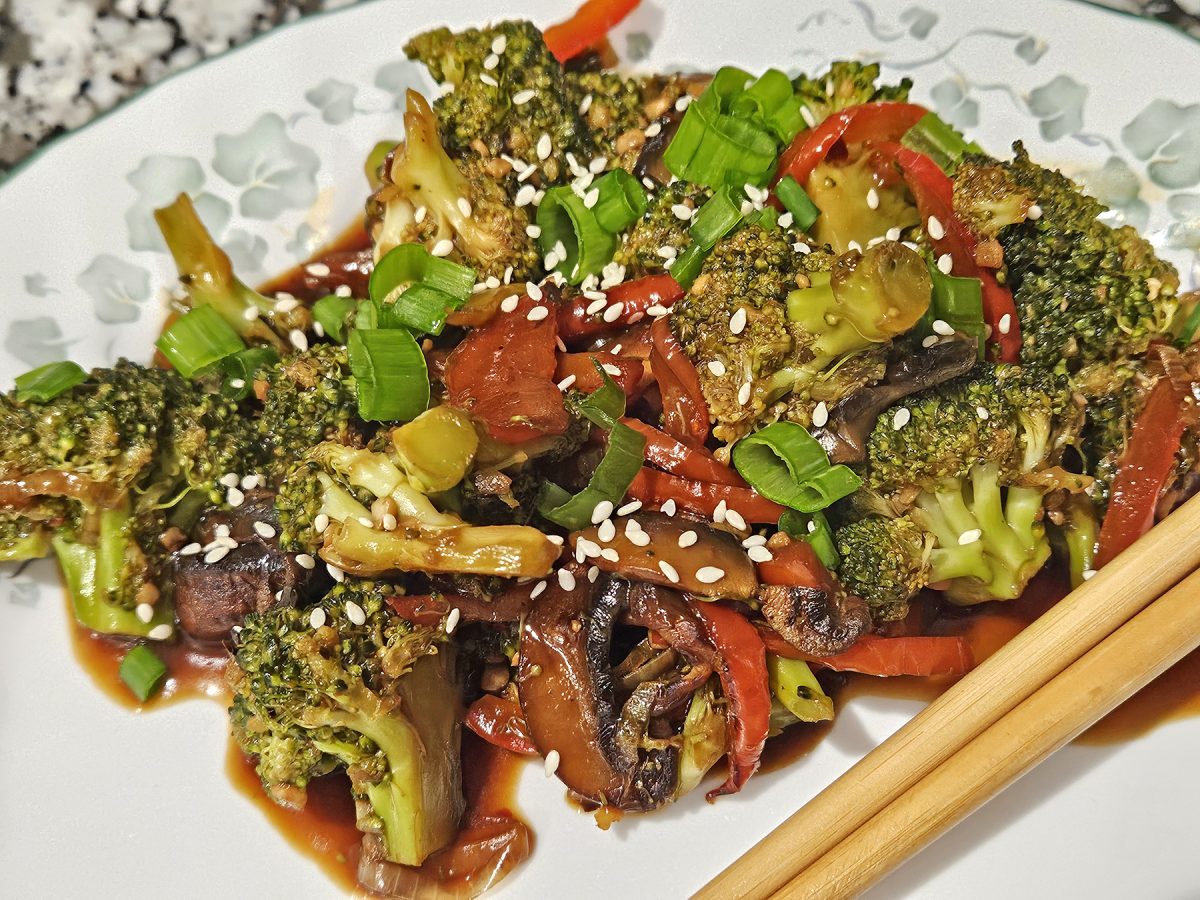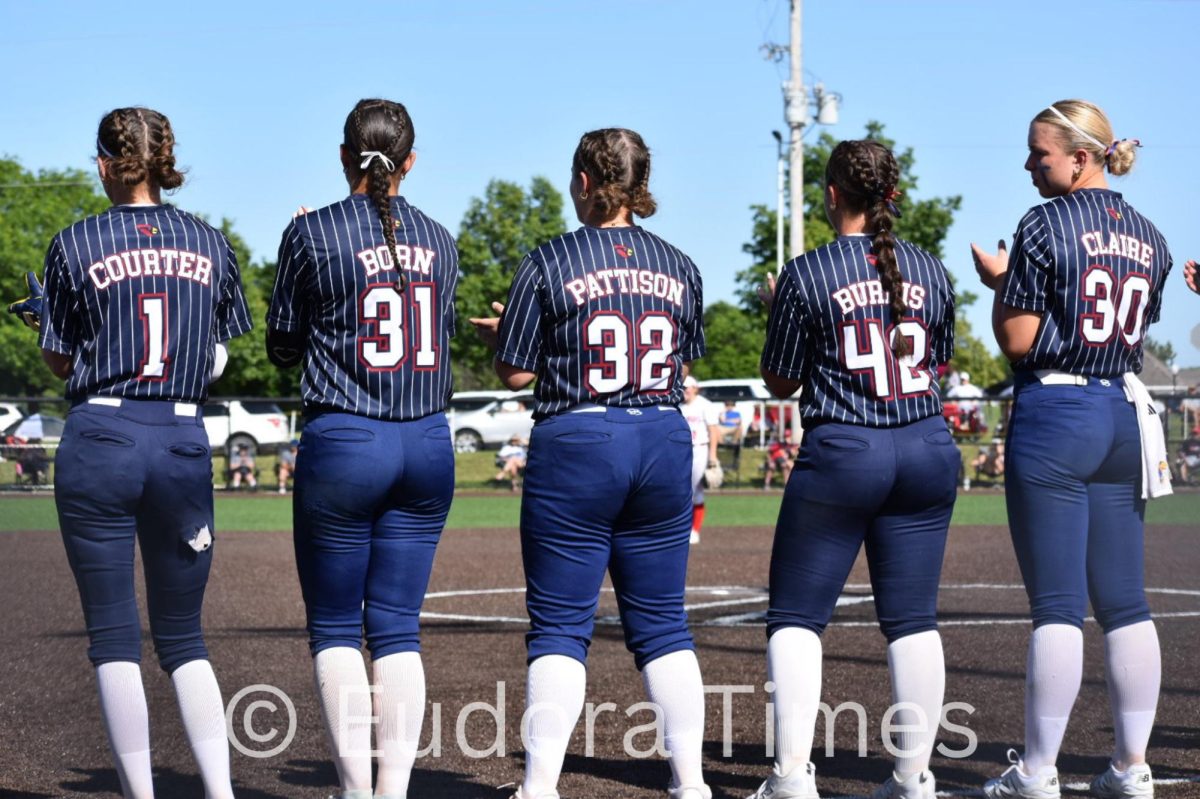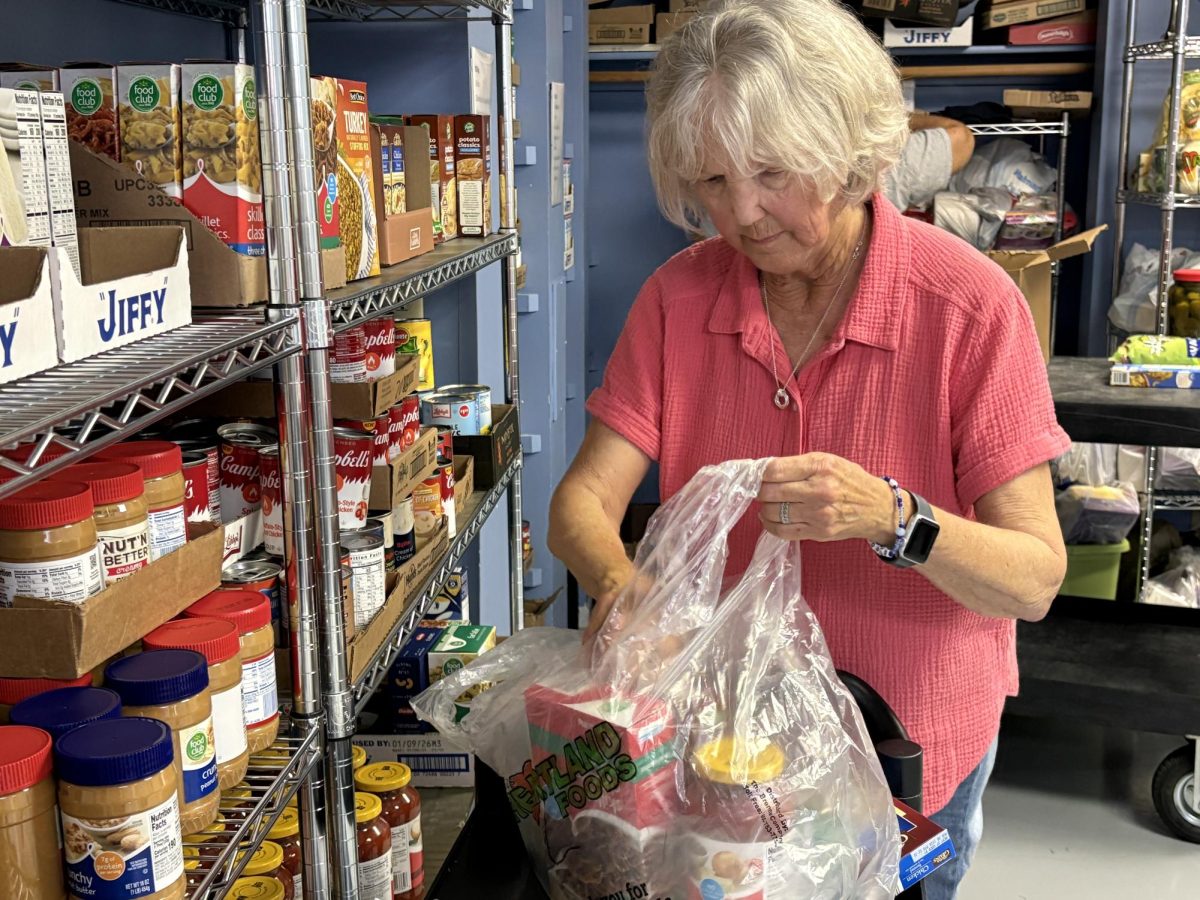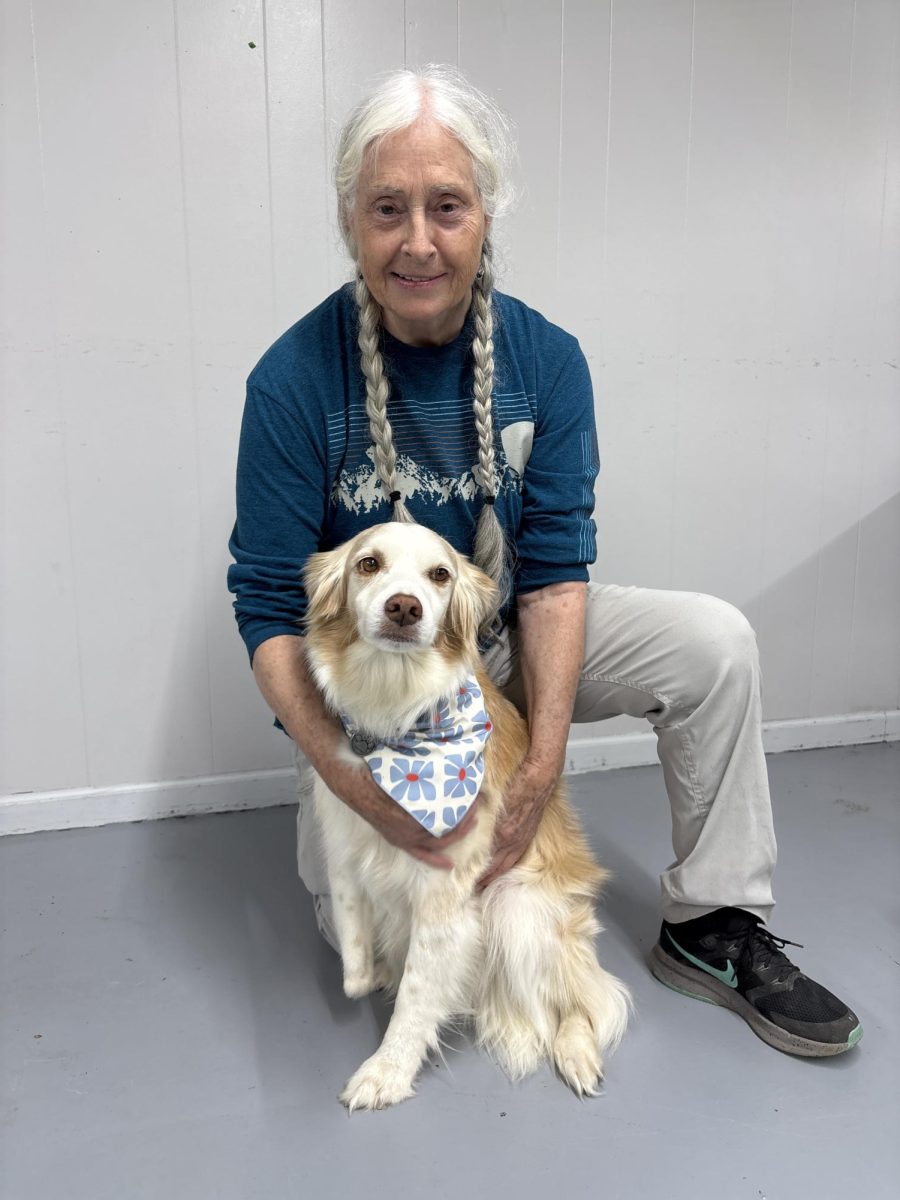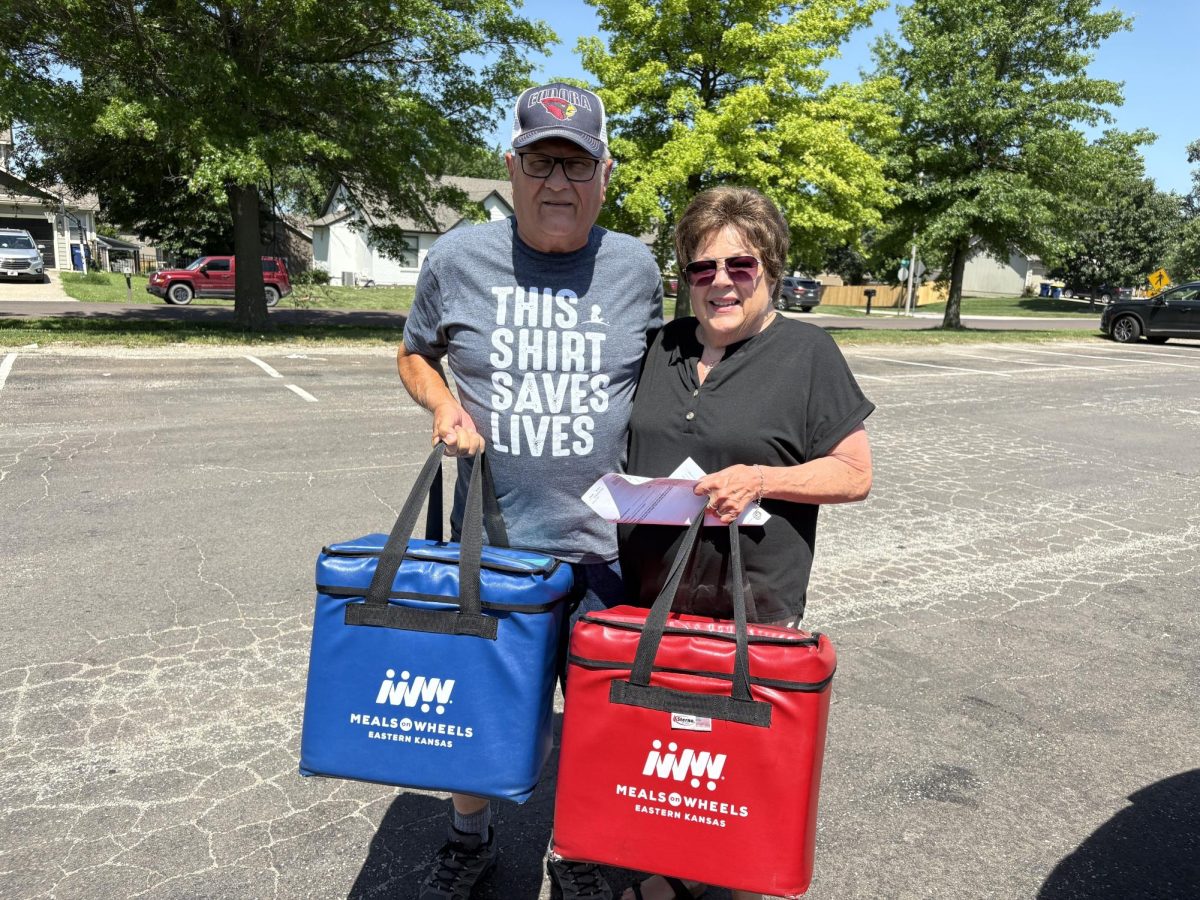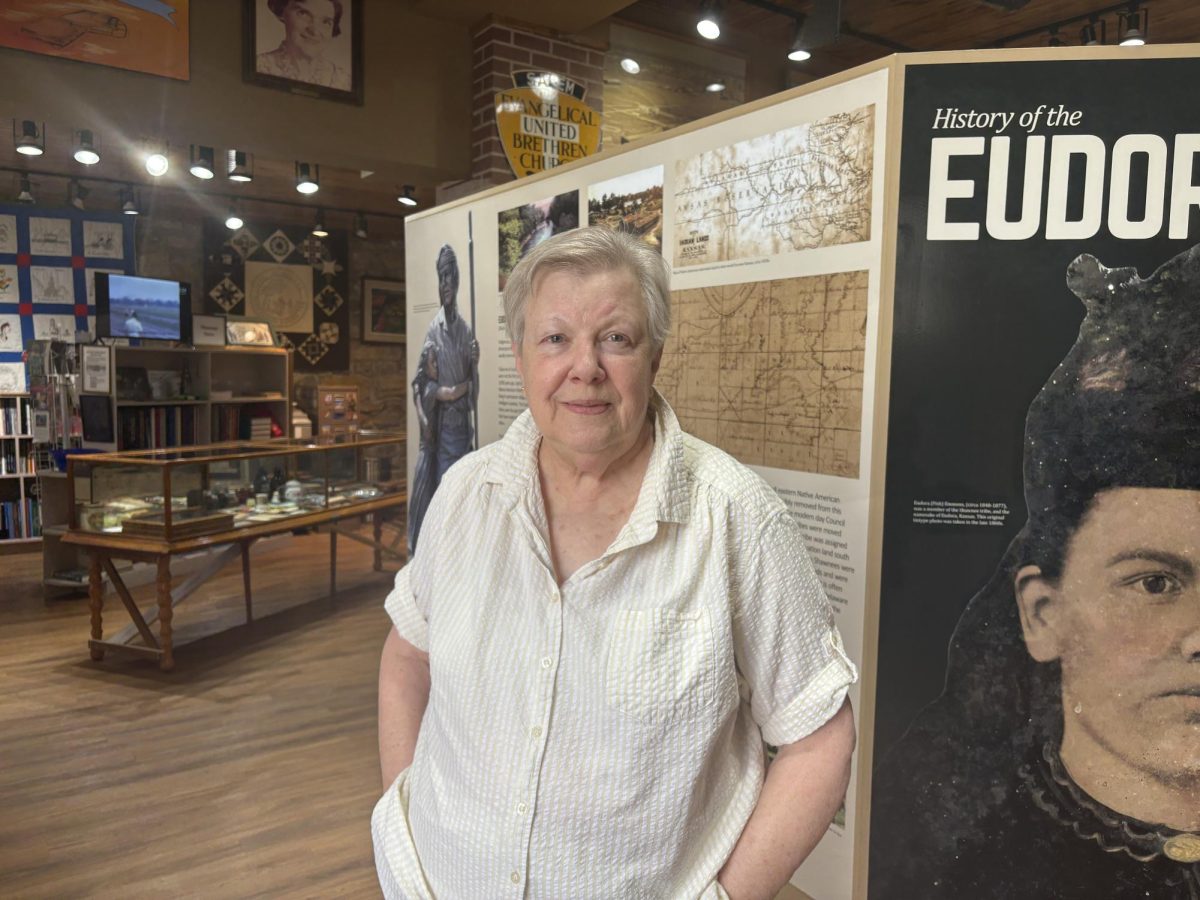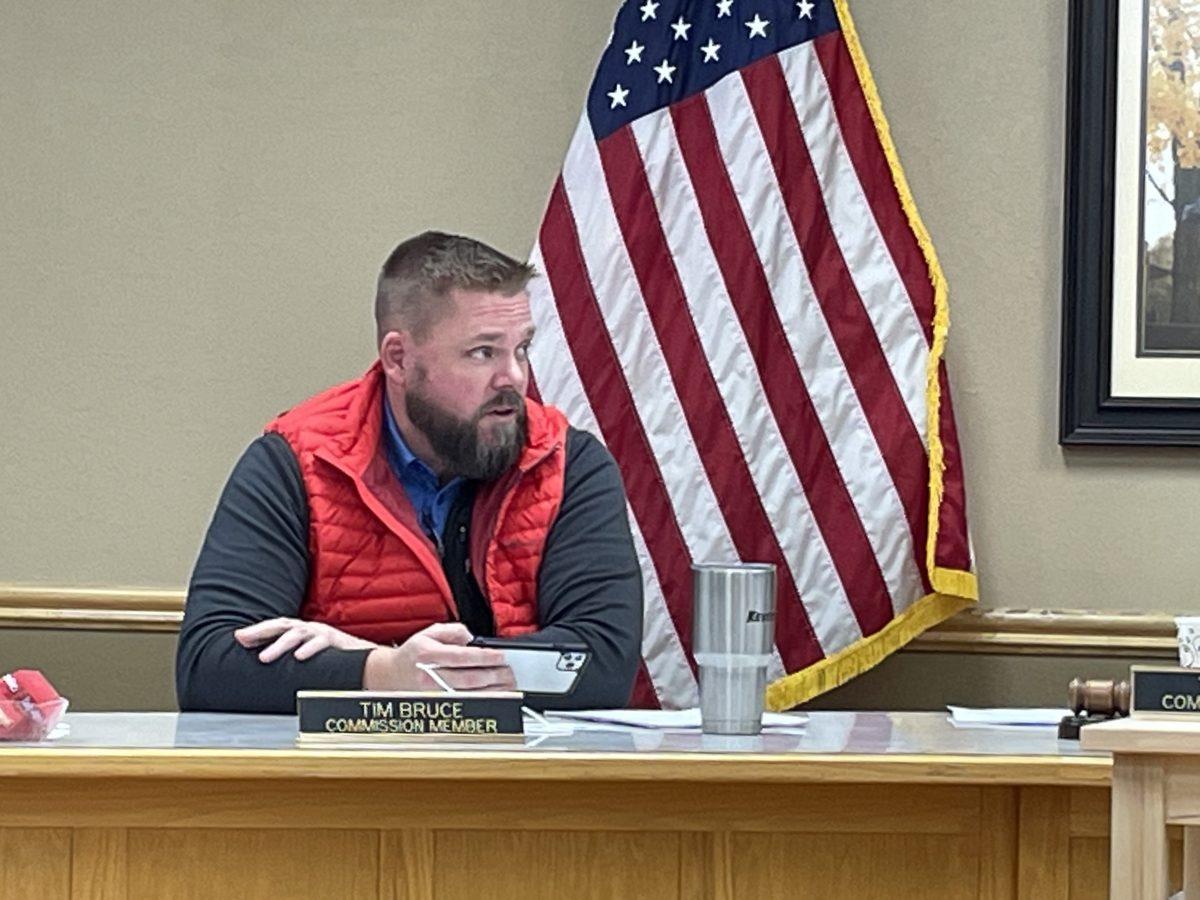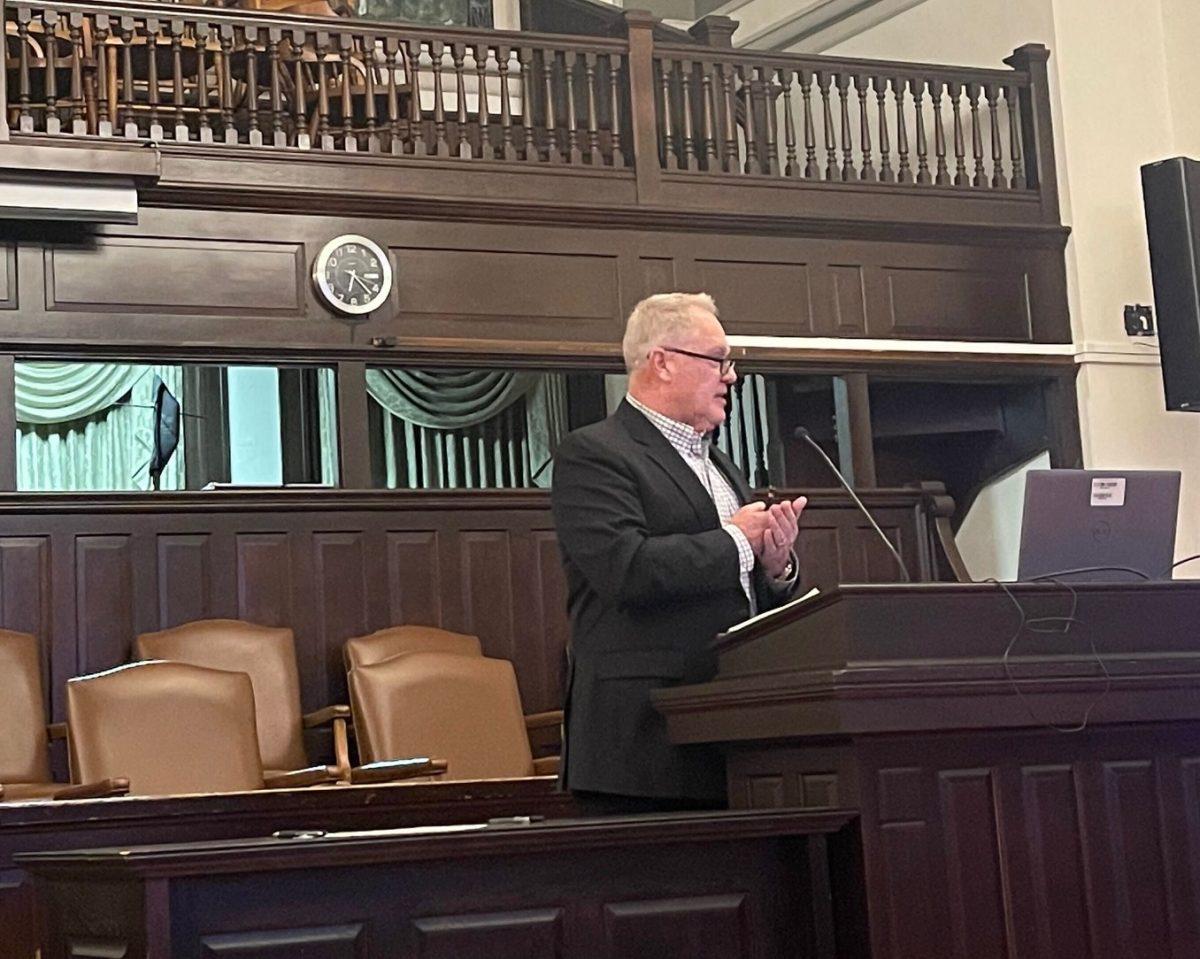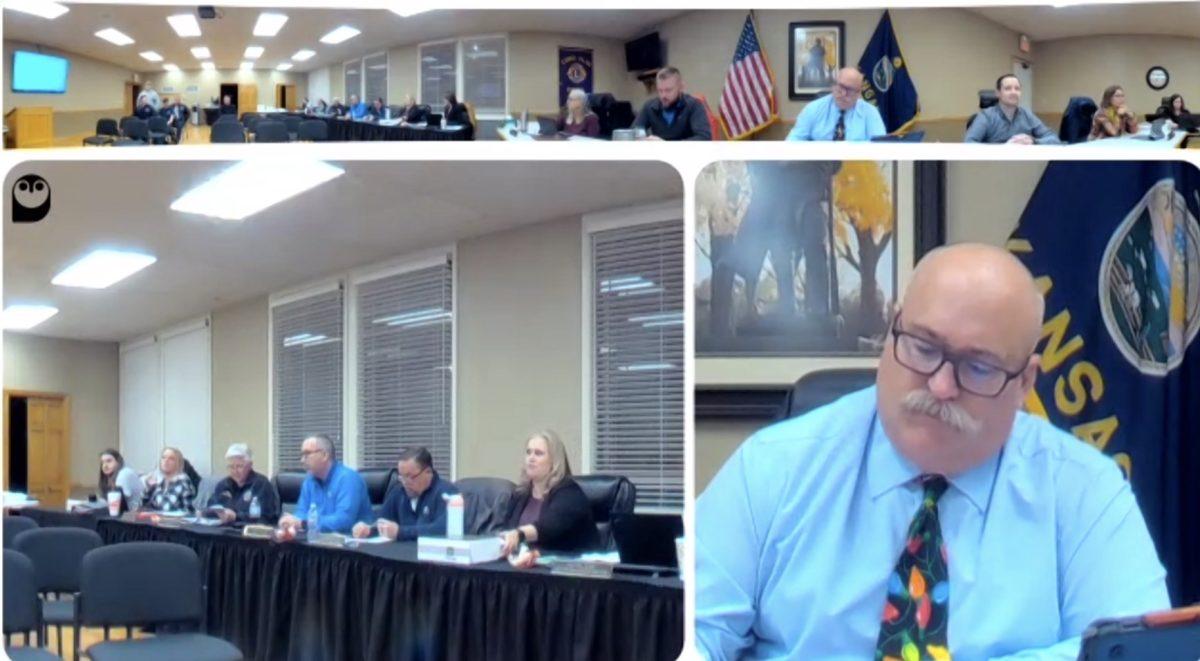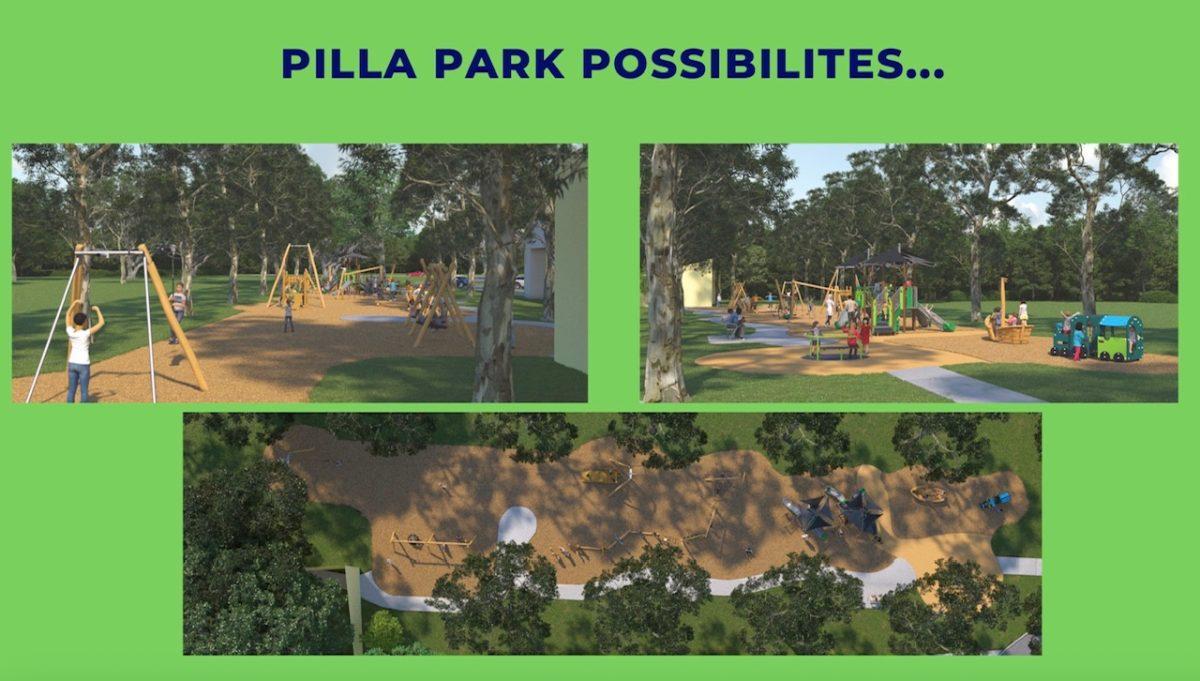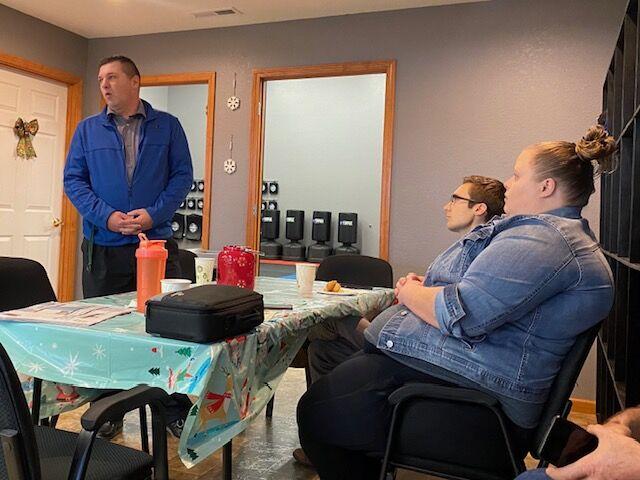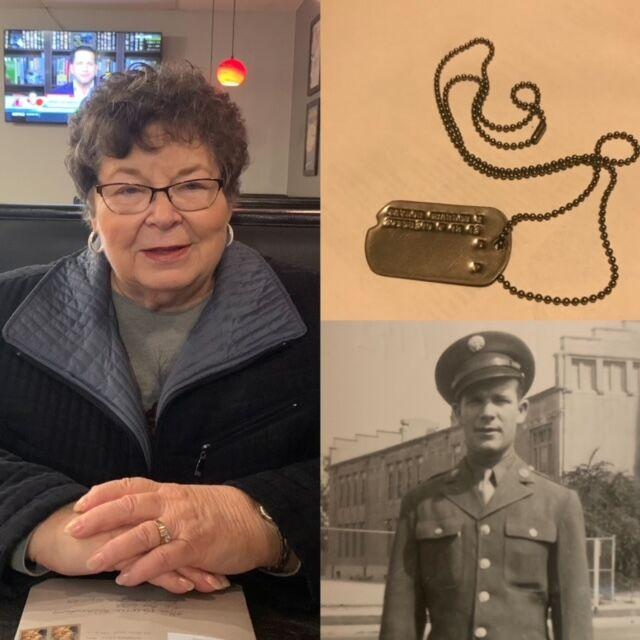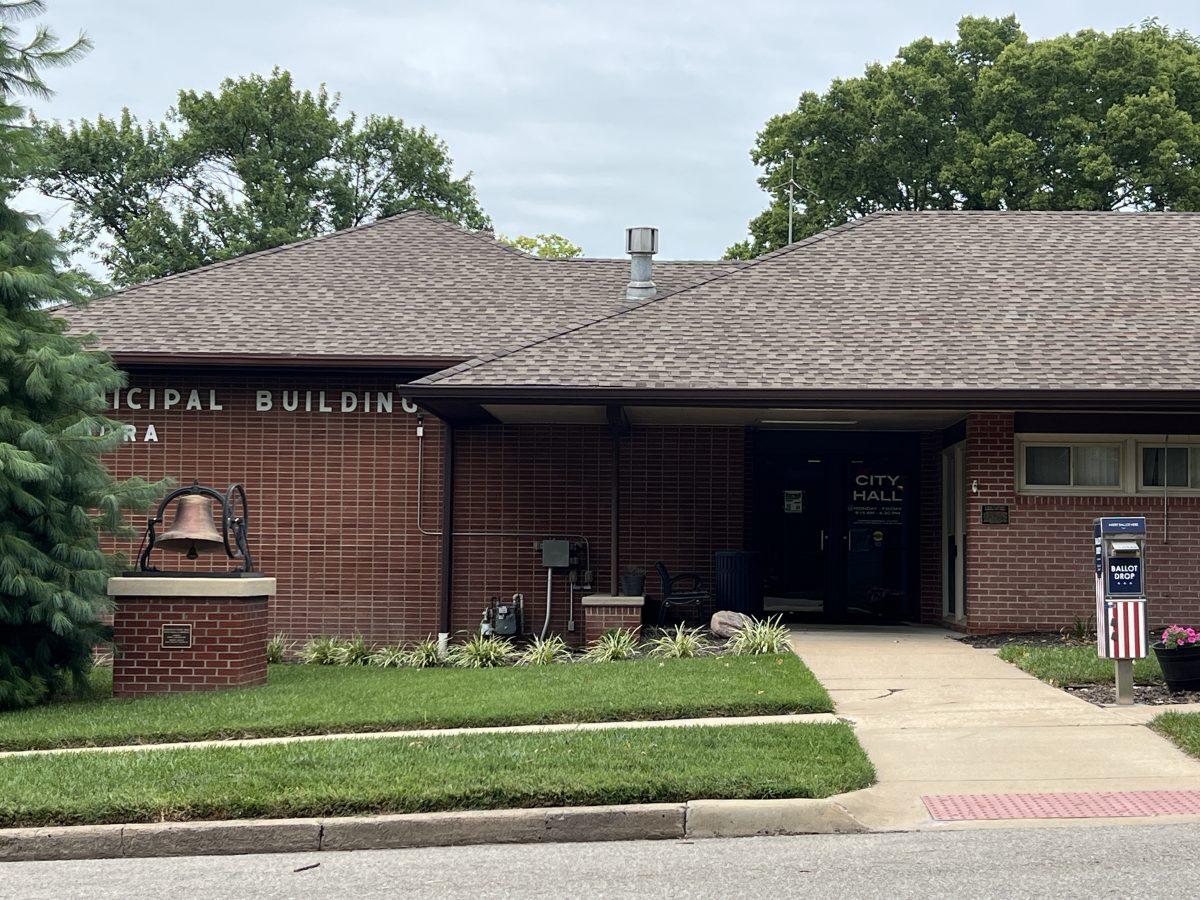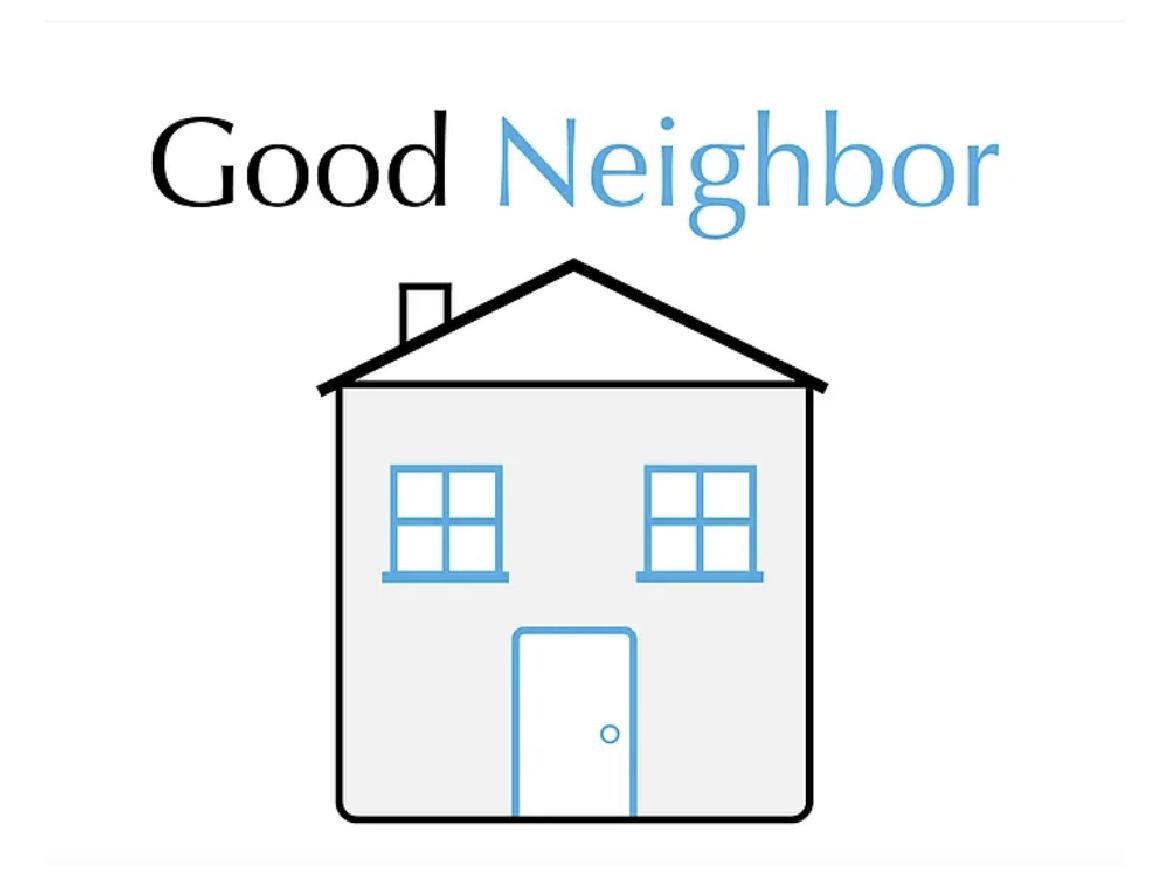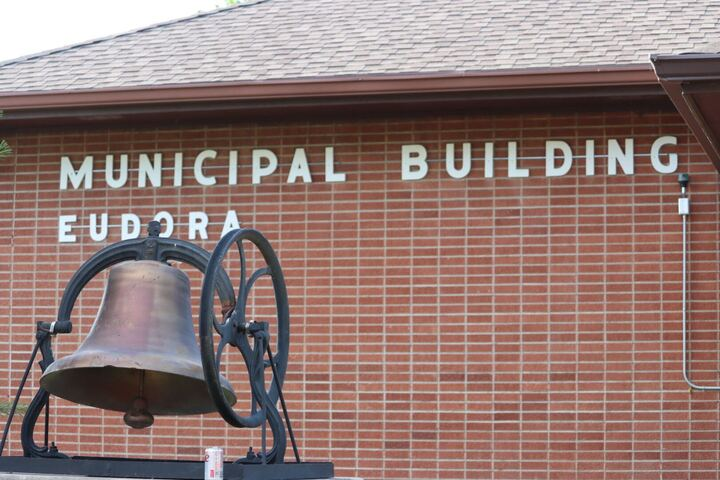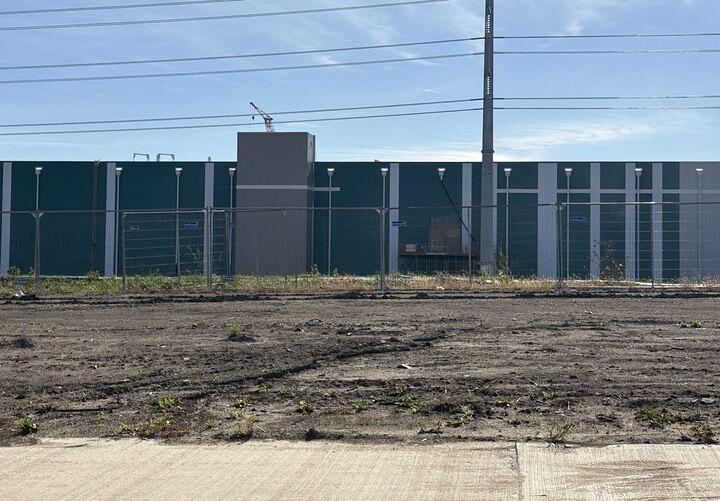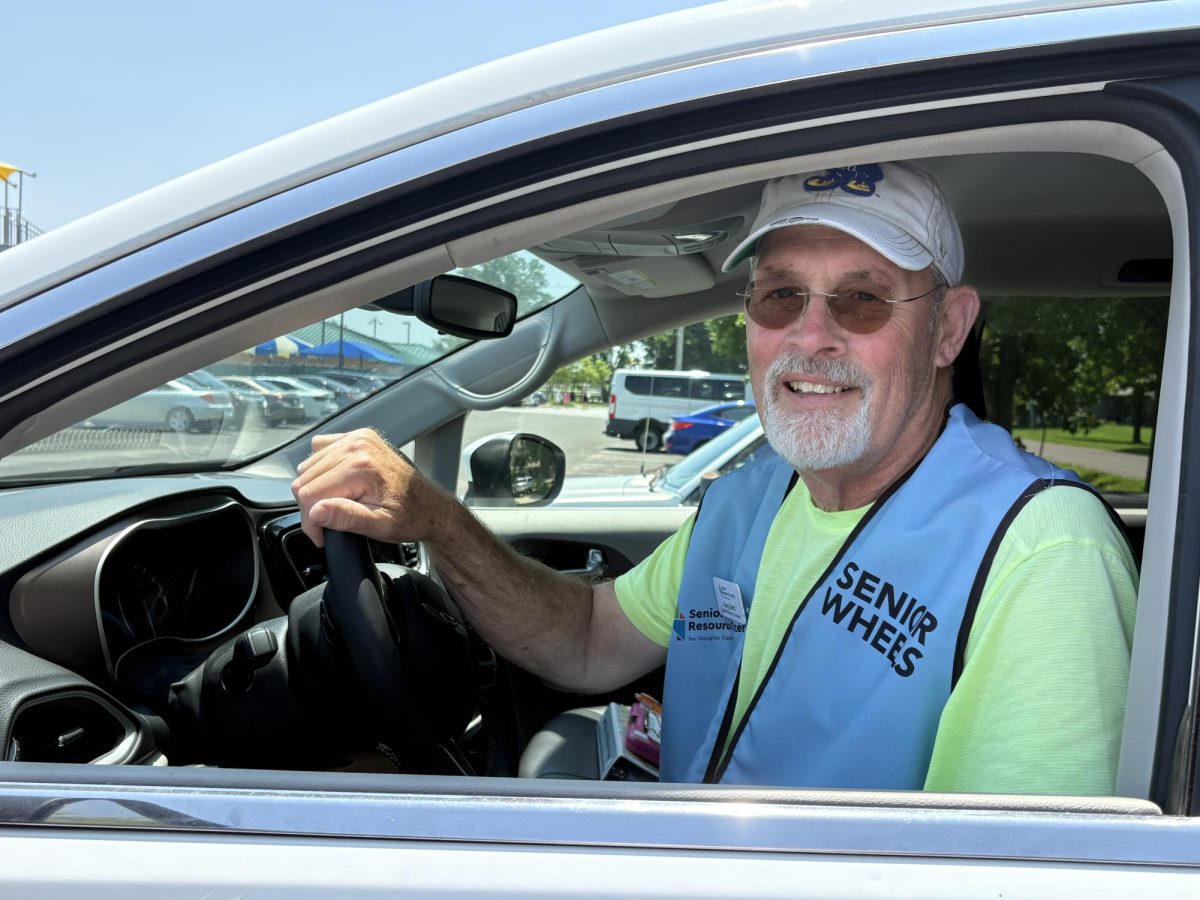This is the second story in a three-part series examining the second anniversary of the pandemic and its impact on some of the essential workers in Eudora.
Frances and Larry McPherson struggled during the pandemic with using other meal delivery services and were relieved with the dependability of Meals on Wheels.
“Meals on Wheels is a lifesaver for us. It’s been much more dependable than other things we have tried to do,” Larry McPherson said. “This has been really really reliable and that’s hard to do in this day and age.”
Meals on Wheels Eastern Kansas has had to adjust to serving its three counties and 1,200 clients throughout the pandemic.
Volunteer Lisa Redlin delivers about a dozen meals to Eudora seniors each Wednesday. Although Redlin has only been involved for two months, she has seen the need for volunteers.
Each Wednesday, Larry meets her in the driveway, no matter the weather, to collect meals for himself and his wife.
“Well, neither one of us are in good health right now, so we have a tough time making meals,” he said.
He thanks Redlin and recognizes how much she and the other volunteers do for them.
Since she is usually delivering to the same people, Redlin has had the opportunity to build relationships with her clients even through her quick visits. She recognizes she may be the only person the clients interact with on a regular basis, even if it is for five or 10 minutes.
“I worry about them now,” Redlin said. “If they don’t answer the door or something, we have to call the office for a welfare check, so last week I had to call twice. And so, all week I was worried about them.”
Since Redlin’s mother gets meals delivered by Meals on Wheels, she has seen the real importance and need for hot meals in a community.
“I think it’s important because I think sometimes, at least me, you don’t think about all the senior citizens around and they need help. Now that I’ve been involved, and seeing them every week, it’s a relationship kind of,” Redlin said. “Knowing that I’m providing them a meal, at least one meal a day, it’s such a good feeling.”
Redlin’s clients are appreciative and look forward to seeing the volunteers each week. Redlin enters one of her client’s homes to chat and asks if there are any other tasks that she can help her with.
“I’ll ask her if she needs anything else. One day she was like, ‘Can you open this Sprite for me?’” Redlin said.
Redlin meets a staff member at the Community Center to pick up the Eudora meals and then uses an app to direct her from house to house.
The app also tells drivers who receive what meals if they have special dietary needs. The process only takes her about 50 minutes.
Redlin used to volunteer at the elementary school before the pandemic and wanted to get back to helping the community. After seeing a post on Facebook asking for volunteers, Redlin reached out and began delivering hot meals.
Meals on Wheels Eastern Kansas serves seniors and homebound people in Shawnee, Jefferson and Douglas counties. The organization delivers daily hot meals as well as provides safety checks.
For people 60 and older who are not deemed homebound by a doctor, they can receive a daily meal at one of the 15 dining hall-style meal sites within Shawnee, Jefferson and Douglas counties.
“I want to start off by saying, we never did miss a delivery day during COVID, so we were able to continue our service and providing meals to seniors,” said Kim Williams, director of Meals on Wheels of Eastern Kansas.
With many of their volunteers being older themselves, they feared for their safety, Williams said.
About half of their volunteers stopped delivering at the beginning of the pandemic, which resulted in staff also delivering meals and volunteers having to double up on their clients, Williams said.
Meals on Wheels Eastern Kansas has about 700 volunteers and provides about 700 to 1,000 meals a day.
“We’re just finally starting to get back into volunteers feeling comfortable again. Our biggest struggle was losing volunteers,” Williams said.
Volunteers still have the option to do contactless delivery with coolers or insulated bags to safely deliver hot meals while being able to wave to the clients to provide daily safety checks. It is up to both clients and volunteers whether they feel comfortable with interactions.
“We want them to be safe during COVID, and we still do require them to wear masks,” Williams said. “Since they weren’t staying in contact for more than 10 or 15 minutes, the exposure was pretty low.”
Another way that Meals on Wheels provided help to clients was with shelf-stable meals to eat in case of emergency.
At the start of the pandemic, clients received 10 extra shelf-stable meals that were purchased with the organization’s COVID-19 disaster funding.
“We did see an increase in the people that were needing it during the first part of COVID, then it kind of leveled out,” Williams said. “Our program kind of fluctuates, it kind of evens out. We get lots of referrals, but we also lose about the same as we take in just based on the population that we serve, whether that’s moving to a nursing facility or passing away.”
Most of their funding comes from the Older Americans Act through the Area Agencies on Aging and through counties, state, grants, fundraising, client contributions and United Way.
‘It brings challenges, but we’ve figured out solutions in any way that we can to not interrupt our service,” Williams said.
People who want to volunteer or see if they qualify to receive meals can call (785) 430-2186.
Reach reporter Sara Maloney at [email protected]
Larry McPherson has appreciated the dependability of Meals on Wheels throughout the pandemic.

